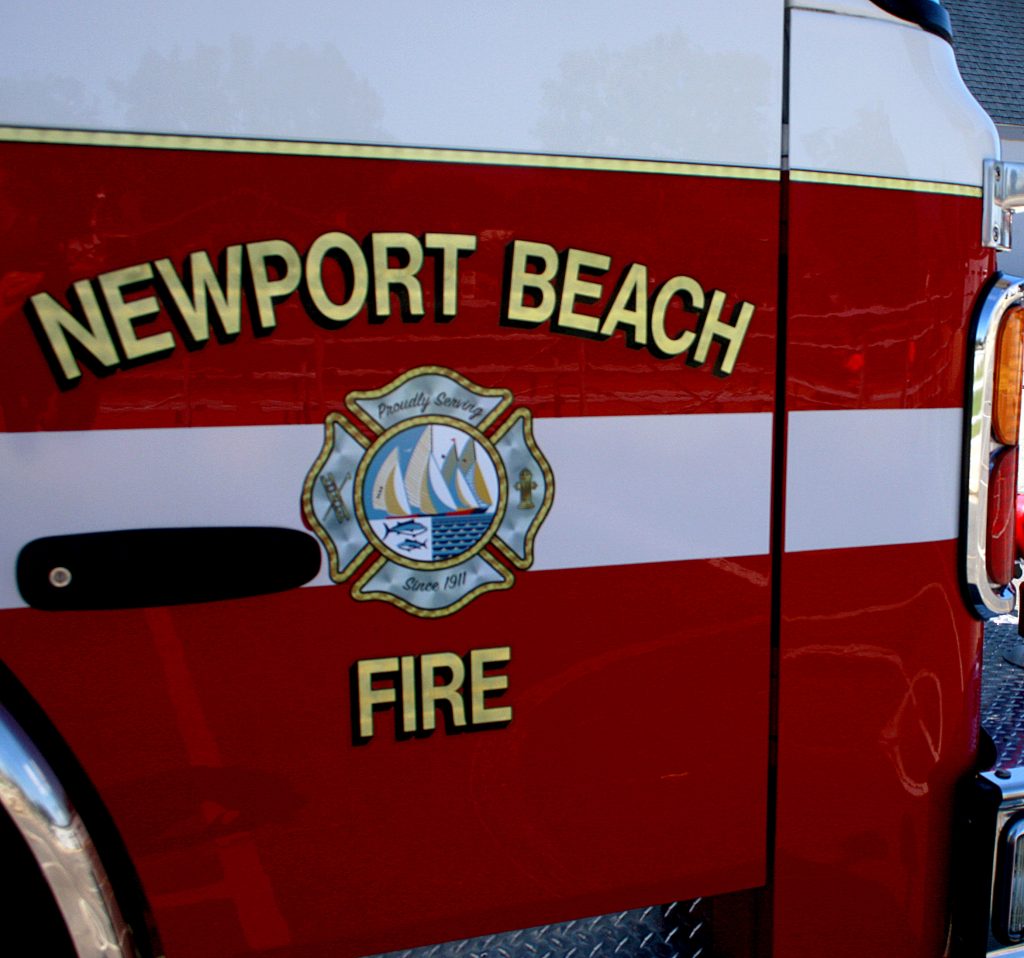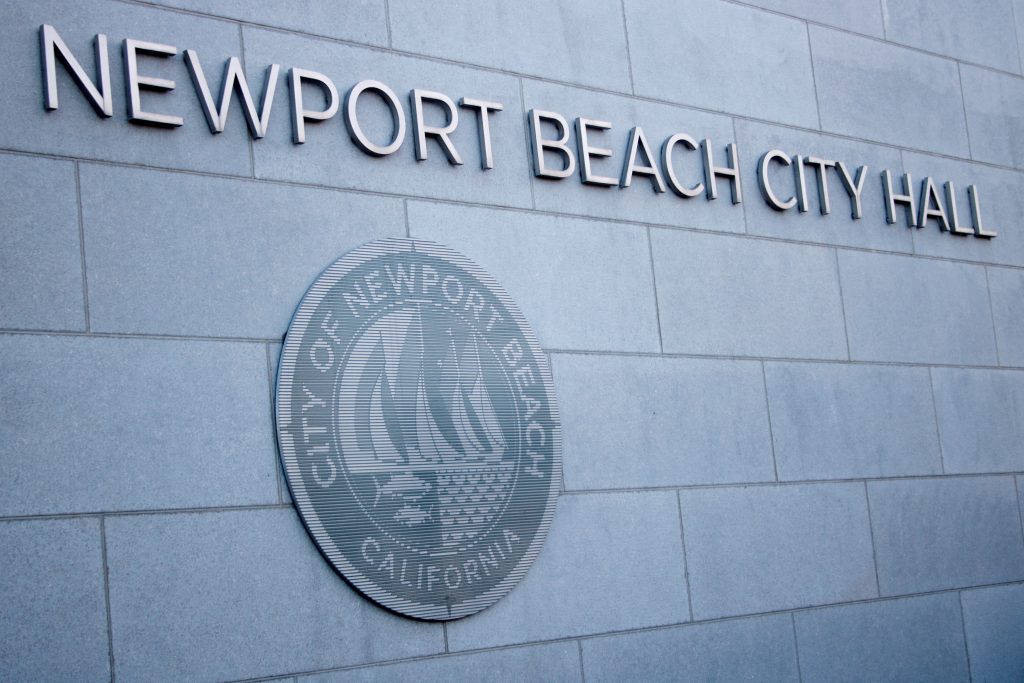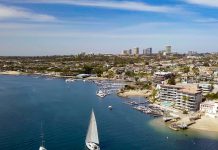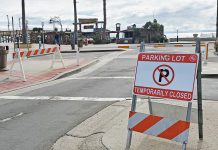Newport Beach City Council discussed potential changes, including some increases, for life safety services fees during a study session this week.
Following a consulting company’s study and resulting recommendations, as well as review from the Finance Committee, on the fees, Council made several comments on the topic during Tuesday’s meeting.
According to the staff report, the city will recover an additional $180,000 annually should City Council ultimately approved the recommended fee updates.
The city’s fee study consultant, MGT of America, recently completed a comprehensive review and update of the Fire and Community Development departments “Life Safety Services” fees.
MGT conducts the fee studies on a rotating basis, explained Senior Accountant for the city, Theresa Schweitzer.
“Our goal is to study the fees every three to five years,” she said.
On June 14, the Finance Committee reviewed the recommended fee updates and unanimously recommended adoption of the fee updates, without change. The majority of the changes are in the Community Development Department, according to the staff report.
Tuesday’s study session was focused on getting feedback from the Council and members of the public.
Schweitzer briefly explained the process MGT uses to analyze the fees, including a four-step method that considers the “fully burdened” cost, as well as the time it takes, to provide user fee services.

— NB Indy file photo
In order to ensure that they are not “over-recovering “ they always round down to the nearest dollar, she added. The information is then reviewed for accuracy and reasonableness by both the city Finance Department and the fee study consultant.
There are two kinds of fees, Community Development Director Seimone Jurjis explained.
There are fees for development projects, where the fire inspector examines new construction or remodels. There are also operational fees, where they check certain facilities and test the fire sprinklers to make sure they are working properly, Jurjis explained.
There are a number of changes proposed, including increases for large multi-family projects (hotels or apartment buildings with three or more units). Currently, the fee for any multi-family buildings starts at $335 and increases in steps, dependent on the number of units. It maxes out at $580 in the bracket for 51 to 150 units, and the fee doesn’t increase any more for projects on the next level with 151 to 350 units or the top tier for projects with 351 to 500 units.
The $580 fee doesn’t cover “anywhere close” to the amount of effort put in by staff, Jurjis noted.
“I can tell you, from our staff resource standpoint, we put a lot of effort into doing these inspections for some of these larger projects,” he said. “Our fee structure that we have currently in place doesn’t really reimburse us for those larger structures.”
With the new proposed structure, the fee starts at a base amount of $333 and then increases at $9 per unit. The total fee depends on the number of units in the project. For example, a 500-unit hotel would have a fee of $4,833.
“It’s supposed to not penalize the smaller projects, but at the same time, make sure that we get reimbursed for these larger projects,” Jurjis said.
The proposed fee is progressive and more tiered, he explained.
“This fee is an example of how the other fees are based,” Jurjis said. “Everything else is going to be based on a similar type of equation.”
He also explained how operations permits are divided up, with “level two” covering gas stations, hotels, and high-occupancy restaurants.
Currently, operations permits are flat fees of $145 for level one properties and $268 for level two.
Life Safety Services conducts about 146 level one inspections annually and the Newport Beach Fire Department team conduct about 30. Those figures jump way up for level two inspections, LSS performs about 263 each year and the NBFD about 869.
Jurjis explained that the NBFD level two inspections consist of NBFD personnel, along with a fire truck since the fire department is always on call, visiting a property for about an hour or two for the safety review. It can be costly, he noted.
The MGT fee study returned with an expensive recommended fee close to $1,000, he said.

— Photo by Sara Hall ©
“From a staff standpoint, we didn’t want to impose a $1,000 fee on businesses,” Jurjis said. “We weren’t comfortable with charging the full 100 percent to these establishments, whether they’re a small operation or a big operation, we just didn’t feel it was the right thing to do.”
Staff re-evaluated and decided to propose a maximum of 10 percent, while asking Council to allow the city to subsidize the remainder, 60 percent for the level one inspections and 62 percent for level two.
The result is a proposed $159 fee for level one and $294 for level two.
There were a few questions from the Council about the city subsidizing the increased fee for some services.
Councilman Scott Peotter pointed out that the city is paying the fire department to be on duty during that time anyway, so it could be considered more of a “partial fee recovery” rather than a subsidy from the city.
Other points Council members discussed included directing staff to allow the appeal fees to be refunded if the appeal through the Building and Fire Board of Appeals is successful, raising concerns about automatic increases without automatic review, and seeking information of where Newport Beach stands on cost recovery and fees compared to other cities.
Taking in the direction provided by Council members, city staff will make adjustments and return to a regular meeting for City Council to review and vote on in the upcoming months.




